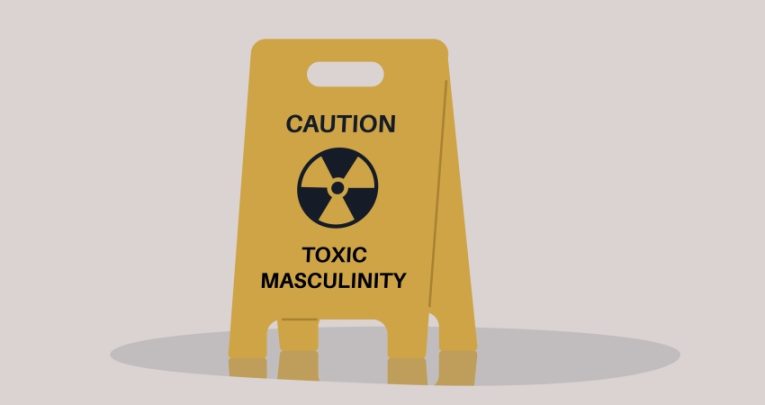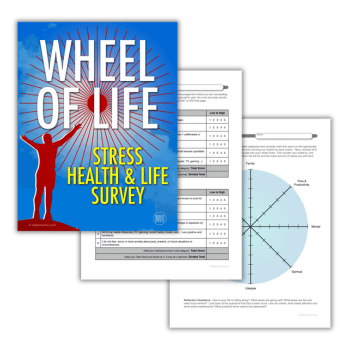Misogyny – Does your school have an ‘Andrew Tate problem’?

Nicole Rodden examines what draws young boys to the misogynist messaging of Andrew Tate and others, and what educators can do in response

If a 14-year-old boy tells his class that women are partly responsible for their own assault, what do you say?
Nothing at first, because it’s hard to speak in the rush of emotions that follow – horror, anger, frustration, fear and deep sadness. Through no fault of their own, teachers across the UK are struggling to suppress such emotional responses, while wrestling with a monster that’s as amorphous as it is powerful.
It’s easy to point the finger at Andrew Tate for this. It’s harder to admit that the root of his hold over young boys lies closer to home. There’s nothing new about misogyny, but the internet, and social media in particular, has given it a life of its own.
Some children now spend more time online than they do in class. The average age of children seeing pornography for the first time is 11.
Healthy relationships are the foundation of a happy and healthy life. But while working as a teacher, I was surprised by how many of my pupils simply didn’t know what a healthy relationship was. Their idea of what’s ‘normal’ and ‘healthy’ is increasingly learned from the internet – a limitless source of ideas that can shape beliefs and guide behaviours.
One belief that an increasing number of boys and young men are internalising is that feeling insecure or vulnerable is shameful, rather than simply being a normal and healthy part of life. This goes beyond simple teenage awkwardness; a number of boys now will do anything to avoid feeling vulnerable.
Entitlement culture
Society has arguably failed to give them an alternative to this narrative. There’s a lack of positive male role models in popular culture who are defined by empathy instead of aggression, but what media and popular culture does often teach them is entitlement.
Seeing men receive attention, respect and love, boys begin believing these things are owed to them. Related to this is that many can also struggle to find a sense of purpose, but are unable to show this sadness and frustration because society isn’t a safe place in which they can reveal such insecurities.
Enter Andrew Tate.
He first came to popular attention as a social media influencer who said shocking and offensive things, but his appeal is far more complex. A core part of Tate’s influencer personality is his ‘self-help’ offering, which sees him teach millions of male followers how to become an ‘alpha’ by pursuing a luxurious lifestyle, prioritising physical fitness and dominating others – especially women.
This can be an attractive proposition for boys, especially those not offered a viable alternative vision of masculinity.
Male identity
Tate promises to help his audience extinguish their insecurity and build a new sense of identity based on confidence, aggression and dominance. The exploitation and harming of women isn’t a side-effect of Tate’s ideology; it’s the very method by which his followers lay claim their male identity.
Unfortunately, schools aren’t well supported in addressing this issue and are terrified of getting it wrong. Half of all RSHE teachers don’t feel confident navigating such difficult conversations with pupils, and we can’t blame them when there’s little guidance to follow.
I know of one school where staff felt powerless to confront Tate’s beliefs, and simply banned all discussion of him within its halls – a likely common response. However, discussion is the surest means by which schools can help young people ‘unlearn Tate’, form a healthier understanding of relationships and ultimately make better choices for themselves and others.
Trending
Unlearning misogyny
Educators must remember that pupils learn about sex and relationships through unfiltered, frequently decontextualised content on platforms such as TikTok and YouTube and from online pornography – content that will be much more adult than the traditional RSHE offered in schools.
It may be difficult, but young people want to be spoken to like adults. As much as possible, RSHE discussions should be similarly unfiltered, use plain language and avoid dancing around the issue with metaphors of teacups and consent.
Such discussions form a crucial part of unlearning misogyny and other harmful beliefs. Pupils’ lives are increasingly lived online, with apps and direct messages their primary channels of communication.
This, combined with COVID’s broader impact on social development, has created a generation of young people who often lack the skills to communicate their needs, whether it’s talking about their feelings, dealing with rejection or showing someone affection. In-person discussion helps them develop the oracy skills needed to express themselves, feel vulnerable and navigate the social complexities of life.
Consent education
The wider cultural conversations around these kinds of complexities are in constant flux. The ‘Everyone’s Invited’ campaign, for example, was a game-changer. More than 50,000 people shared their experiences of surviving sexual assault, uncovering the very real and dangerous scope of sexual assault experienced by young people across the country, and the urgency with which it needs to be addressed.
Schools have an important role to play in this change. Relationship violence prevention programmes, which can form part of a school’s RSHE provision, have been shown to reduce sexual harassment and assault among young people. To create a more open and empathetic environment, we need to foster open conversations between all genders.
Consent education has been an incredibly important and positive development in this area, but there are other issues on the ground that must be addressed too. Teachers have found that focusing on consent has made boys nervous of accusations of non-consensual sex, and have told us that this approach reinforces other damaging beliefs about sex.
Instead, we must teach all students that consent needs to be mutually agreed, and that both parties are active and equal participants. This will in turn help counter the dichotomy of how pleasure is viewed, with girls often shamed for sexual expression while boys are praised and rewarded.
Compassion and respect
Ultimately, chastising boys will only make them more vulnerable to the influence of people like Andrew Tate. Instead, schools can support them by discussing the complexities of relationships with compassion and respect.
It’s the broader negative influence of online content, coupled with scarce healthy examples of masculinity that we need to address. Our culture’s definition of masculinity remains narrow and damaging.
The current generation of young people has a chance to change this for the better. If we can teach boys to embrace their vulnerability, and find their identity in compassion and kindness, they will build a very different world. One we all deserve to grow up in.
Anti-Tate tactics
- Adopt a whole school, holistic approach to relationships and wellbeing
- Develop a spiral RSHE curriculum that builds students’ understanding over time
- Embed consent into how the school approaches pastoral support, wellbeing and safeguarding
- Create safe spaces for discussion in both single sex and mixed groups; it’s crucial that students come together and share their experiences with peers
- Don’t limit conversations to Andrew Tate; discuss wider issues and incorporate positive and
- alternative narratives
- Equip students with the skills to build healthy relationships; this includes being able to communicate their needs, talk about their feelings and deal
- with rejection
- Give teachers the skills and confidence to handle difficult conversations and provide ongoing support – they shouldn’t be expected to handle everything on their own
- Pool resources with other schools to share insights, experiences and best practice
Nicole Rodden is a former RSHE teacher and Co-Founder of Life Lessons; for more information, visit lifelessons.co.uk or follow @lifelessonsrse











